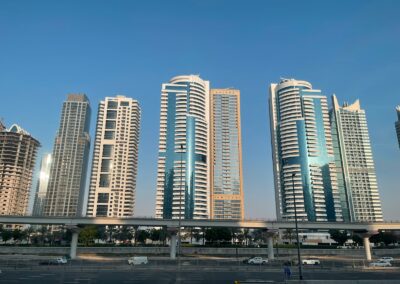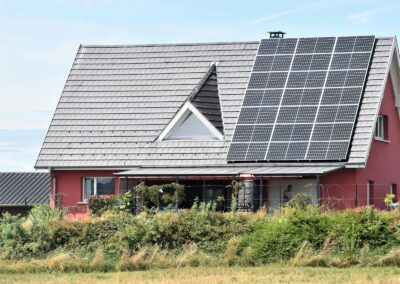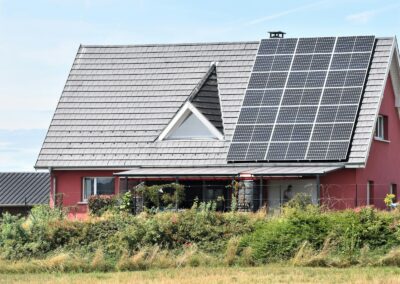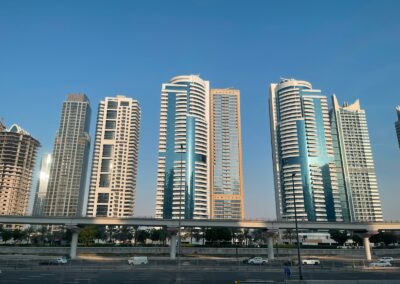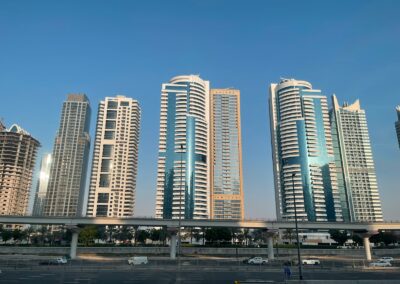The Role of Integrated Water and Energy Management Systems in Smart Buildings
Introduction to Integrated Management Systems
The integration of water and energy management systems in smart buildings is a transformative approach that significantly enhances overall efficiency and sustainability. As urban centers like Riyadh and Dubai continue to develop, the need for advanced and sustainable building practices becomes more pressing. Integrated management systems utilize cutting-edge technologies such as artificial intelligence (AI), Internet of Things (IoT), and blockchain to optimize resource use and minimize waste. For business executives, mid-level managers, and entrepreneurs in Saudi Arabia and the UAE, understanding the benefits and implementation of these systems is crucial for promoting sustainable development and achieving long-term success.
Optimizing Resource Use with Smart Technologies
Integrated water and energy management systems leverage AI and IoT technologies to monitor and control resource consumption in real-time. These systems can detect usage patterns and inefficiencies, allowing for timely adjustments that reduce waste and enhance efficiency. For instance, in a smart building in Riyadh, sensors can monitor water usage across various facilities, detecting leaks or excessive use and triggering immediate corrective actions. Similarly, energy management systems can adjust lighting, heating, and cooling based on occupancy and environmental conditions, ensuring optimal energy use. This dynamic management not only conserves resources but also reduces operational costs and enhances the building’s overall performance.
Impact on Sustainability and Operational Efficiency
The integration of water and energy management systems in smart buildings has a profound impact on sustainability and operational efficiency. By reducing resource consumption, these systems help lower the carbon footprint of buildings, contributing to global efforts to combat climate change. In Dubai, where sustainable urban development is a key priority, such systems are becoming integral to new and existing projects. Moreover, the operational efficiencies gained from optimized resource use translate to significant cost savings. Businesses benefit from lower utility bills and enhanced productivity, while also demonstrating a commitment to sustainability that can attract environmentally conscious investors and tenants.
Driving Business Success through Sustainable Practices
Investing in integrated water and energy management systems offers numerous strategic benefits that drive business success. Companies in Saudi Arabia and the UAE can enhance their competitive edge by adopting sustainable practices that appeal to a growing market of eco-conscious consumers and stakeholders. These systems not only improve operational efficiency but also enhance the corporate image by showcasing a commitment to sustainability. In regions like Riyadh, where regulatory frameworks increasingly support green building practices, businesses can achieve compliance while also gaining a reputation as industry leaders in sustainability. The long-term financial benefits of reduced operational costs further underscore the strategic value of these investments.
Effective Change Management and Executive Coaching
The successful implementation of integrated management systems requires effective change management and executive coaching. Change management strategies ensure that all stakeholders are engaged and supportive of the transition to new technologies. Executive coaching can develop leadership skills that prioritize sustainability and resilience, helping leaders navigate the complexities of integrating advanced management systems. For business leaders in Dubai, where rapid technological advancements are the norm, these skills are essential for driving successful change and achieving strategic objectives. Management consulting services can also provide valuable insights and best practices for deploying integrated systems, ensuring alignment with organizational goals and minimizing disruptions to daily operations.
The Future of Smart Buildings: AI, Blockchain, and the Metaverse
The future of smart buildings lies in the continued integration of AI, blockchain, and the metaverse. AI advancements will provide even more sophisticated capabilities for optimizing water and energy use, enhancing predictive maintenance, and personalizing occupant experiences. Blockchain technology can ensure secure and transparent management of resource transactions, promoting trust and accountability. The metaverse offers new opportunities for virtual simulations and interactive management, allowing stakeholders to visualize and optimize building operations in a digital environment. For business leaders in Saudi Arabia and the UAE, embracing these emerging technologies will be key to transforming the built environment and promoting long-term sustainability. By staying at the forefront of these trends, businesses can ensure they are well-prepared to navigate the future of smart building management and drive continuous improvement.
#WaterManagement #EnergyManagement #SmartBuildings #Sustainability #BusinessSuccess #ManagementConsulting #ArtificialIntelligence #Blockchain #Metaverse #LeadershipSkills #ProjectManagement



